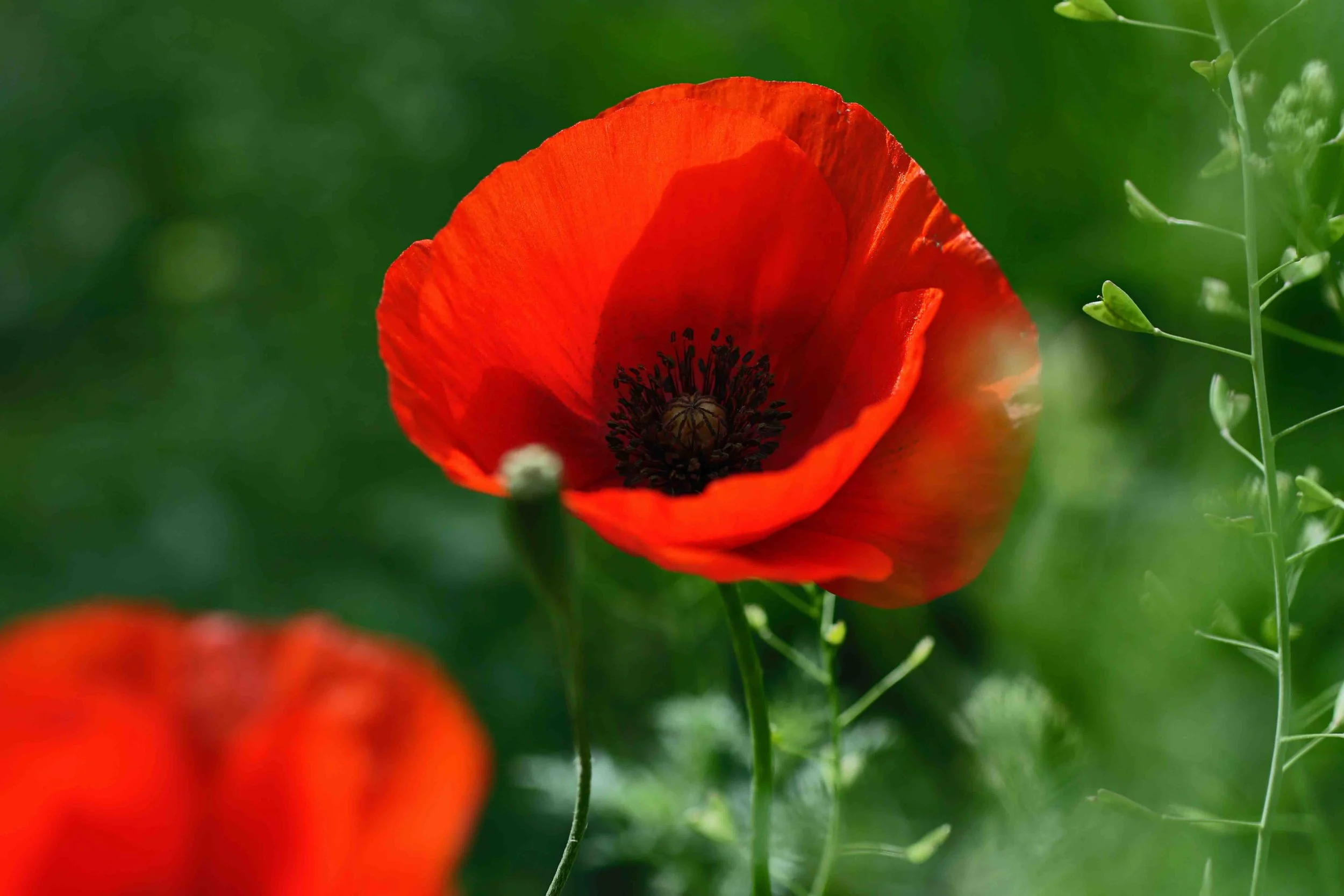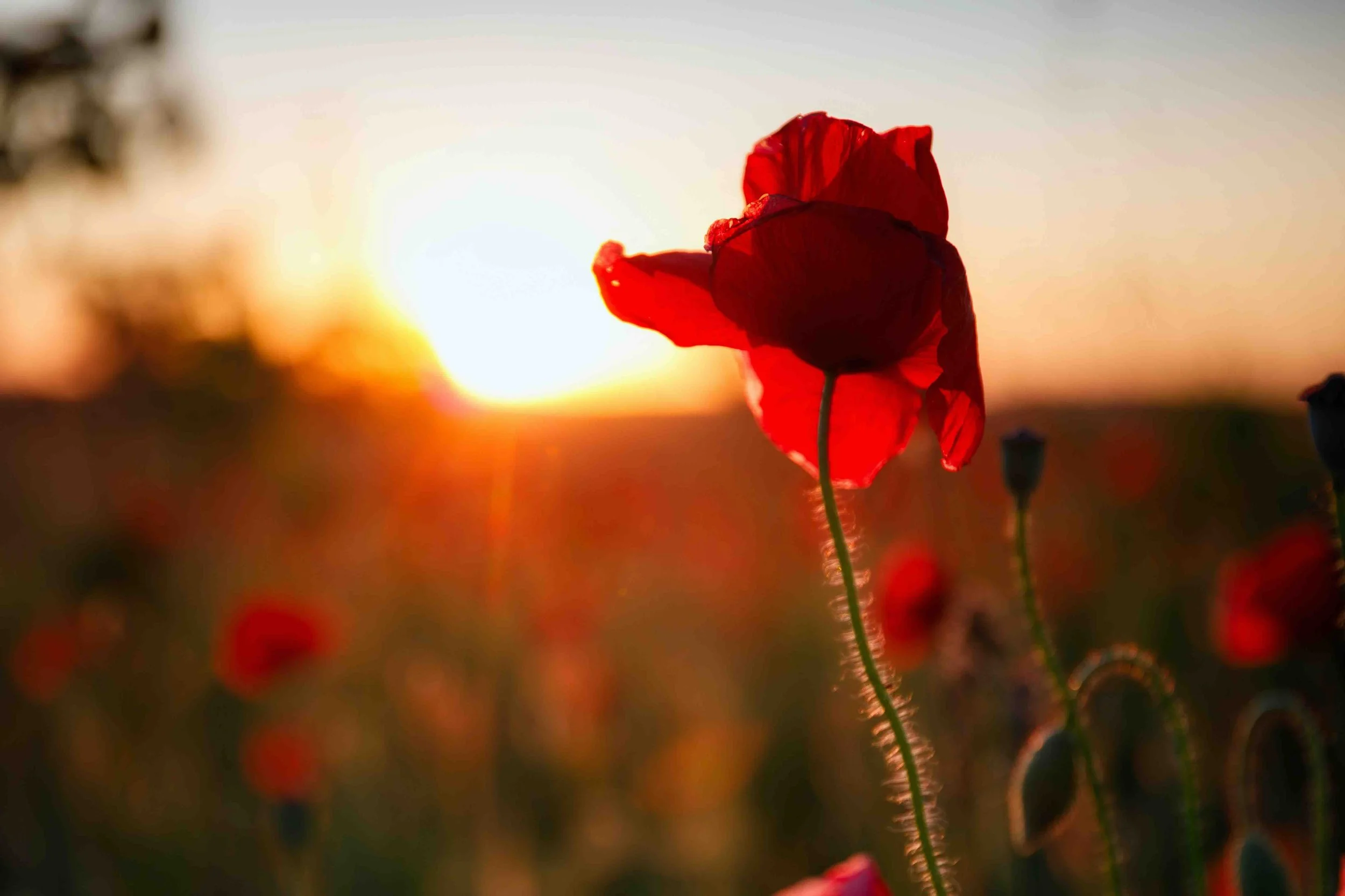
Poppies at the Shakespeare Garden
Papaver somniferum (opium poppy)
Papaver rhoeas (corn poppy or Flanders poppy)
Shakespeare only mentions the poppy one time and that is in the play Othello. In the play, lago recognizes that even the strongest drugs will not bring sleep and comfort to Othello.
In Romeo and Juliet, Shakespeare refers to a drug that will cause a death-like sleep but does not specifically mention the poppy.
During Shakespeare’s time, opium was a common treatment for several ailments and it would have been common for doctors to have this available. Celia Thaxter in her 1894 book, An Island Garden, describes the Opium Poppy, “I muse over their seed pods, those supremely graceful urns that are wrought with such matchless elegance of shape and think what power they hold within. Sleep is there and Death, his brother, imprisoned in these mystic sealed cups.”
The Opium Poppy had been cultivated in England, but the climate was not suited for the plant. The major source for opium was India. The poppy grew more generally as an ornamental plant.
As for the corn poppy or Flanders poppy, Ruskin, a 19th century botanist, describes it this way, “The poppy is painted glass; it never glows so brightly as when the sun shines through it.” Shakespeare does not actually mention the “innocent” red poppy and it is believed that this was not introduced to England until 1627, after his death.
There are more than 250 species of poppies globally. They are popular for their beauty, but the poppy has deep symbolism attached to it. Sleep and peace are linked to the poppy through Greek mythology and the god of sleep, Hypnos. It also represents death and mourning, resilience and hope, and remembrance and sacrifice through the battlefields of Flanders.
The Flanders poppy is an annual that is hardy in zones 3-10. It prefers full sun exposure and is quite low maintenance; it will naturalize in fields. The plant prefers a well-drained soil but is not drought tolerant. It blooms in late spring and early summer.
Shakespeare references to Poppies:
-
Friar Lawrence speaking:
Within the infant rind of this small flower
Poison hath residence and Medicine power.
For this, being smelt, with that
Part cheers each part:
Being tasted, stays all senses
With the heart.
-
Iago speaking:
Not poppy or Mandragora,
Nor all the drowsy syrups of the world,
Shall ever medicine thee to that sweet sleep.


